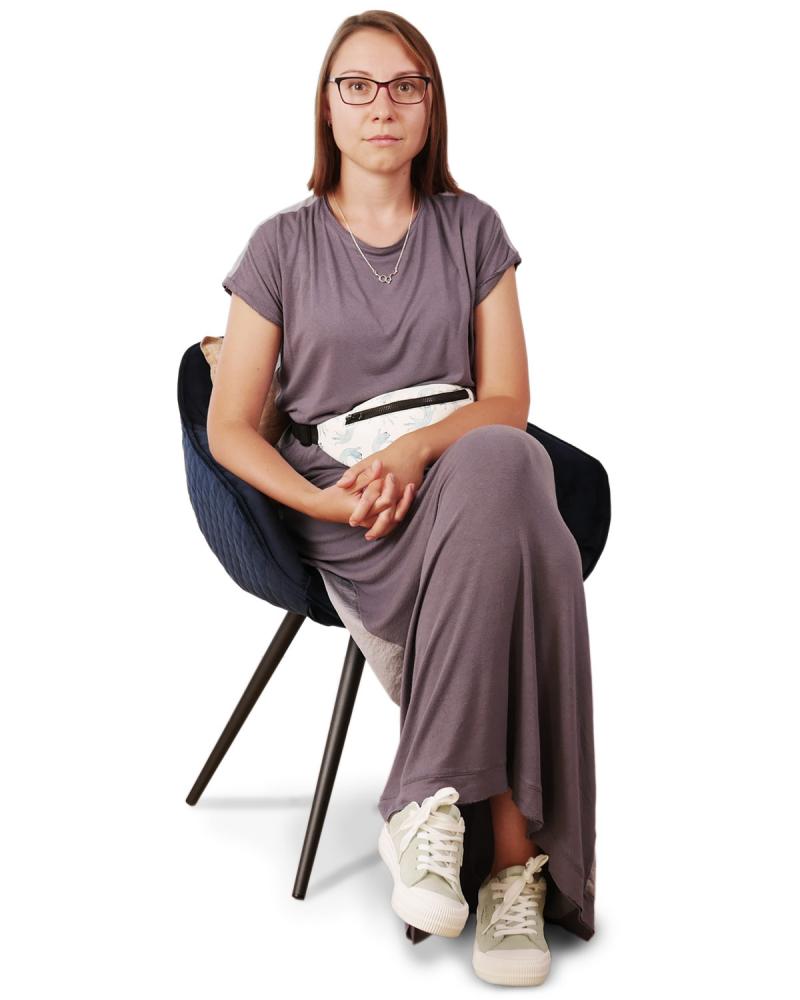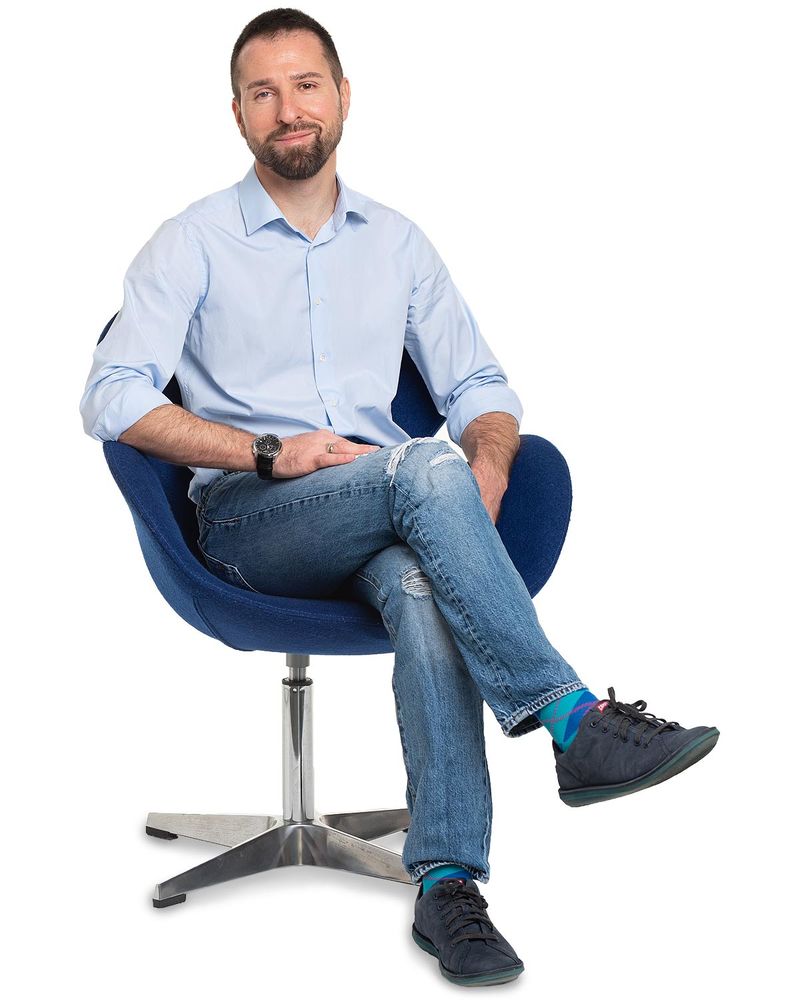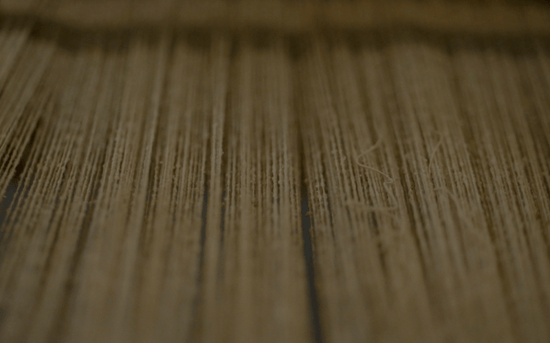Like any art, cinema evokes many emotions. And these emotions can be pleasant or not so much — or even therapeutic or traumatic. Why do we watch horrors, should we watch films about the war during wartime, and why do we love rewatching movies we know by heart?
How does cinema influence our psyche? What makes a film "therapeutic"?
We live in times when it's hard to imagine life without the film industry. Cinema forces us to contemplate important topics, draws attention to pressing issues, evokes or actualizes certain experiences, and influences our worldview.
Through identification with the characters, we can live out parts of our own history: unrequited love, loss of loved ones, problems with self-actualization, understand our own traumatic experience, feel a sense of belonging to certain groups of people, and so on. Cinema also plays a significant social and cultural role, as discussing films and shared reflection promotes communication, trains our thinking, and helps us look at the images on the cinema screen from a broader perspective. Watching films is one of the modern ways to relax and derive pleasure.
But how often do we consider how we watch films and what happens to us during the viewing? How does a particular film become "therapeutic" for us or cause dissatisfaction?
Let's try to lift the curtain and find some answers.
At the turn of the century, "motion pictures" enjoyed great popularity in both Europe and America. For the French, following the tradition of the Lumière brothers, cinema was a certain experience of social life. Visiting cinemas was a kind of ritual, part of which was the exchange of opinions and impressions. Film screenings promoted communication and enriched people's inner emotional world.
In contrast, Edison's Kinetoscope in the USA, which was operated by coins, did not have such social significance, but rather aroused the curiosity of the working class to observe the latest "frame".
During those times, the German psychologist Hugo Münsterberg worked at Harvard University and began writing articles for popular magazines (Cosmopolitan and Atlantic Monthly). In 1914, he first visited a cinema palace to watch the film "Neptune's Daughter," directed by Herbert Brenon, and was fascinated — both by the picture itself and by his own experience of watching it.
Subsequently, in 1915, Münsterberg wrote an article on the psychology of the "photoplay" and became the first psychologist to begin studying this topic. Münsterberg intellectually presented his thoughts on the appeal of cinema and its influence on the audience, described his impressions after visiting the cinema palace, and focused attention on the educational possibilities of films. He was struck by the moving images and tried to convey all his fascination with the observation, describing cinema not only as art but also as an experience of emotional feelings.
Despite the fact that Münsterberg's surname is not often mentioned outside the history of psychology, it is difficult not to acknowledge his contribution to film theory. He is the author of the first academic text – "The Photoplay: A Psychological Study" (1916), as well as two essays: "Why We Go to the Movies" (1915) and "The Danger to Childhood in the Movies" (1917).
And if the first psychological studies in the field of cinema were devoted to the study of attention, memory, and emotions, the influence of certain themes and genres (science fiction, horror, thrillers, etc.), today the psychology of cinema is increasingly linked to neuroscience, which helps to study and observe the deep processes that occur in the brain.
It was with this question that the event of the Academy of Motion Picture Arts and Sciences, titled "Movies in Your Brain: The Science of Cinematic Perception", began in 2014, bringing together filmmakers and cognitive scientists to explore how viewers process visual images and events in the story shown on the cinema screen.
Uri Hasson, an adjunct professor of psychology and neuroscience at Princeton University, discussed how the human brain's reaction to films can be measured dynamically using an MRI machine. Emphasizing that brain neurons need energy for excitation, and different areas of the brain process different information, Hasson demonstrated a map of neural responses to parts of films. It was noted that the film "Dog Day Afternoon" (1975) activates the activity of 63 to 73% of the brain and also produces external manifestations, such as laughter.
Film editor and sound designer Walter Murch emphasized that when creating films, he pays a lot of attention to psychology and observations related to the physical manifestations of mental disorders. His talk inspired participants to conduct a live experiment during the event and record audience reactions using an infrared camera. The essence of the study was as follows: infrared frames were played back along with a part of the film, and viewers could observe their own reactions and their coincidence with those they saw in the characters on the screen.
In fact, similar "tricks" are often used in filmmaking to encourage the brain to work "together with the film". They have been refined over decades, studying the connections between perceptual and cognitive processing and film editing. That is, the people who make films constantly take into account the mechanisms of visual information processing by our brain and their connection with the emotional reactions of viewers.
Thus, cinema goes beyond just shaping audience feedback and presents new opportunities for studying the brain and psychology.
Therefore, when choosing a film to watch, each viewer starts from their own needs and desired emotions that they can get as a result. Simply put, to smile, to cry, to enjoy the acting, to relax. Cinema influences us, and we influence cinema. After all, industry workers monitor us, study our reactions. And we, in turn, respond to them with our own feedback on the relevance of certain plots for the modern viewer. This is already a certain system of relationships that we mutually form. And as in ordinary life — some inspire and support, others — only disappoint and cause anxiety that interferes with sleep at night. Observe your reactions and emotions during viewings; they can give you the answer to which film-relationships (and not only) to choose for yourself and which are harmful to you.

You may be interested in: Artificial intelligence and psychotherapy: benefits, harms, and risks
Ukrainian artists, particularly filmmakers, are documenting the war extensively. How should we, as viewers, watch films about war — during the war? What psychological processes can watching war films trigger? Does it help the psyche cope or does it harm it?
Art is a very private thing. Everyone has their own individual relationship with it, their own response and attitude. What is obvious is that the foreign viewer's response to the portrayal of modern war will differ greatly from ours — those who live inside the film picture. Hence, a logical assumption might arise: why traumatize oneself further with images of war if we are already in the epicenter of the tragedy? But it's not that simple. Art can be a way to transform literality into metaphor; it's an incredible ability of our psyche to convert raw — and therefore traumatic — material into processed meanings that can be digested. This, roughly speaking, is how psychotherapy also works.
I like to watch films about war in the cinema, not alone. For me, it's like telling scary stories around a campfire at a children's camp. When you are not alone with what hurts you, it is much easier to cope. Speaking further about the commonality of experiences, this is also an opportunity to get a little closer to the experiences of those who have felt the war firsthand: our defenders, people from temporarily occupied territories, victims of Russian aggression. Of course, this cannot give a complete sense of understanding unless you have a similar experience, but it is an important step towards someone else's pain and a readiness to share the burden.
However, I still recommend paying attention to your own emotional state and not engaging in self-harm when there is insufficient internal resource for war films. After all, even such an indirect way of thinking about war, through cinema and art in general, still requires mental effort, which is sometimes scarce. So, if you feel strong resistance — watch a good comedy or a TV show. Taking care of yourself is relevant at all times.

You may be interested in: The effect of chronic stress on mental and physical health
Why do so many people enjoy watching horror films? What psychological processes does watching horrors reflect, and what needs can it fulfill?
I don't watch horrors at all, nor was I inclined to be interested in them before. However, I watched many of them in my adolescence, and now, analyzing that experience, I can identify one of the answers to "why?". It's the opportunity to be with others, to form a group and share a similar experience. Well, who didn't have nights at children's camp with scary stories about ghosts and spirits? Where you absolutely had to prove your courage and say that it was all "child's play" that wouldn't scare anyone.
So, here we can find needs for belonging to a group, as well as for controlling fear.
More details on experiencing fear: in the film, there is the predictability that it will end, there is no physical harm because I'm sitting on the sofa, hypothetically, there's even the possibility to pause, stop the viewing when I want to. There is even a therapeutic technique for difficult memories, where the client imagines transferring a heavy memory onto the screen of an imaginary TV, and in their hands is a remote control with which they can stop, rewind, or turn off this "film." This technique helps to restore control to the person, to gain a new experience where I am not powerless and helpless. For our psyche, we similarly gain the experience of having coped, survived the frustration, and therefore, it works as a stress tolerance training. For adolescents, it's also a protest against parental prohibitions, part of separation, where I go beyond "childish" restrictions into 18+.
We live in a very unstable, wartime, and no one has canceled the pressure of the fast pace of the modern world. Horror films, through projection, i.e., the transfer of internal phenomena (feelings, desires) onto external objects (characters, scenes), catalyze the experiencing of complex themes, allow contact with aggression and rage, which may be unacceptable in reality, and integrate this within oneself.
In horror plots, the theme of death is often present, so viewing can be an entry point for reflecting on the finiteness of existence, the inevitability and fragility of the present. And thus, the search for value and meaning.
And I'll add a little medical flair: during the viewing of horrors, adrenaline and cortisol are released, which invigorate the body. We can feel more energy and concentration afterwards. After passing the trials, dopamine will be released, and that is always pleasant, not a step without a reward. Phew, you can exhale because endorphins have arrived, like after a workout in the gym, and the heart has been pumped up.
I've described the benefits of horror films so much that I even wanted to try something new. Is it really without drawbacks? Personally, I believe that viewing won't be completely safe for everyone. There is a probability of over-stimulating the nervous system, feeling irritability, and anxiety. People with a sensitive psyche may have nightmares. They can, on the contrary, potentiate and intensify existing phobias. And like much digital content — cause emotional dependence, especially in younger generations. So, only by one's own desire and consent, in limited quantities, and for some — under adult supervision.

You may be interested in: How to live in a period of uncertainty?
Why is it emotionally pleasant for many people to rewatch films or series many times, even those known almost by heart? Why do people during wartime often say they don't want to watch or read anything new, but gladly rewatch old films?
We might know the plot by heart, predict every line, and laugh even before the character tells the joke. And still, we press "play." Especially now, in times of war, when there isn't always enough energy for something new. Why do familiar stories feel so comforting?
A space without surprises
A familiar film is a territory where nothing is threatening. We know what will happen next, and this makes us feel calmer. It's like returning to your own home: the door creaks the same way, the cup is in its place, the smell of coffee is familiar. In a world where there is uncertainty every day, such stability is a real gift.
American researcher Jessica Borelli writes that rewatching familiar stories is similar to "returning" to warm moments of the past: we live them again and feel the same support we once had.
Rest for the brain
A new series requires attention: you need to follow the plot, remember the characters, and catch the emotions. But a familiar one allows you to exhale. It's like when you come home after a hard day and you don't have to strain yourself: everything is familiar and dear. The brain truly "rests" at this moment because it doesn't have to process so much new information. And familiar scenes also bring pleasure from predictability. We await our favorite moment — and the enjoyment of it is often even greater than a surprise.
Nostalgia as a warm blanket
Old films are not just stories on the screen. They are parts of our lives: childhood evenings with cartoons, family holidays, youth with friends. Turning on a familiar series is touching the past that seems simpler and safer. Sometimes, it's this feeling that is so lacking now.
Why is this especially important during the war?
Constant news and social media feeds can be exhausting. Every message brings anxiety and pain. In such a state, additional "new content" becomes another stressor. Familiar films act as protection here: they do not traumatize, do not require extra effort, but give a sense of control and hope. After all, we know in advance: our favorite hero will definitely cope, and the story will end well.
Decision fatigue
Every day, we have to make dozens of decisions: from small to very serious ones. Sometimes, even the choice of "what to watch" becomes an unnecessary burden. A familiar series removes the problem here — no additional doubts, no risk of disappointment. You just turn it on and relax.
Not an escape, but a support
It might seem that repeated viewings are an escape from reality. But in fact, it's a way to endure it. Familiar stories restore a sense of order. They remind us that even in chaos, there is a space where everything works out correctly.
So when someone jokes:
— But you've already seen this! — You can only smile and answer:
— That's exactly why I'm turning it on again.











